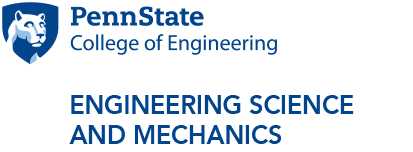Engineering Nano Characterization Center
The defining purpose of the Engineering Nano Characterization Center (ENCC) is to teach and engage in research for materials characterization, wave mechanics, and nondestructive evaluation with an emphasis on nanotechnology.
Researchers in the ENCC use ultrasonic non-destructive evaluation and testing techniques to look for defects and changes in a vast array of materials such as locomotive wheels, packaged baked goods, and living human cells. Wire guided ultrasonic waves are used for measuring dimension changes, material changes, formation of corrosion, and formation of cracks in materials under high temperature and pressure. Ultrasonic air-coupled sensors are used for the inspection of packaged food products.
Key Faculty:
Labs and Facilities:
Acoustic Microscopy Lab
The Acoustic Microscopy Lab houses three acoustic microscopes for teaching and research:
- The Ultran System for acoustic microscopy of large samples and low resolution (100 micron and up)
- The Olympus UH-3 System for acoustic microscopy of small samples and high resolution (1 micron and up)
- The Ultrasonic Atomic Force Microscope U-AFM for acoustic microscopy of small samples and super resolution (10 nanometers and up)
These instruments are being used to investigate thin films, coatings, bio-cells, and semiconductors.
Acousto-Optics Lab
The Acousto-Optics Lab features the Microscopic Electronic Speckle Pattern Interferometer (MESPI) for measuring holographically the dynamic surface deformation (0.1 micron resolution) in-situ. For example, during laser drilling and cutting, surface deformation results from thermal stress. Another feature instrument is a system for the detection of cracks in locomotive wheel tires with the use of electromagnetic acoustic transducers (EMATs).
Nondestructive Evaluation Teaching Lab
The Nondestructive Evaluation Teaching Lab features an X-ray instrument and an acoustic emission system. These instruments are part of the lab's hands-on demonstrations for the EMch/MatSci 440 course: Survey of NDE Techniques.
Current Research Projects
Current projects include the nondestructive evaluation of the integrity of coatings and films for detection of wear and/or corrosion due to exposure to environmental effects, imaging of living bio-cells with acoustic microscopy for diagnostic use, and the use of ultrasonic sensors for the detection of uranium and other radioactive particles in enclosed containers for airport inspection.
Ongoing research has been sponsored by the U.S. Department of Energy, the U.S. Department of Agriculture, a consortium of power companies, the Austrian railroad, and other private industries.
Centers and Institutes
- Applied Research Lab
- Center for Innovative Sintered Products
- Center for Multiscale Wave-Materials Interactions
- Center for Nanotechnology Education and Utilization
- Center for Neural Engineering
- Center for Research on Advanced Fiber Technologies
- Engineering Nano Characterization Center
- Materials Characterization Lab
- Materials Research Institute
- Microwave Processing and Engineering Center






